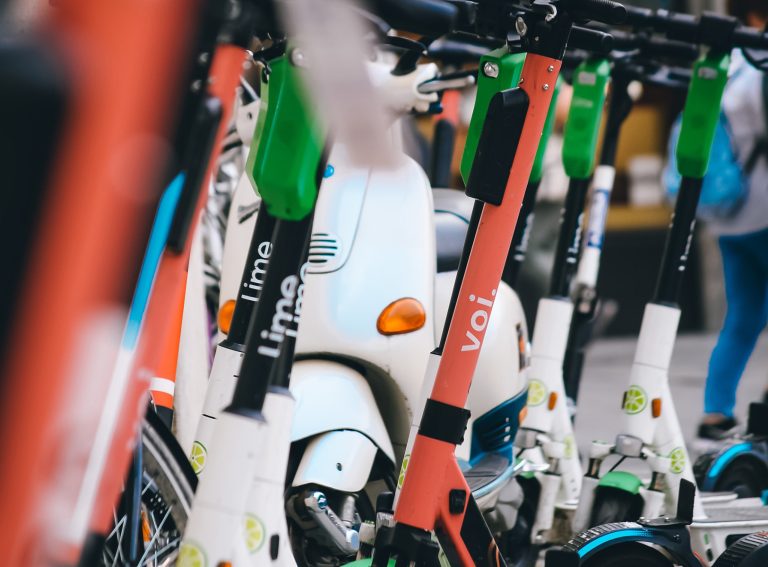The city of Vienna in Austria is introducing a range of radical regulations next year to address improperly parked e-scooters and the lack of available vehicles outside the city centre.
One of the main approaches is to limit the number of e-scooters in the centre to a maximum of 500. This would be a big restriction given that there are currently around 1,500 e-scooters deployed in Vienna’s inner city. The aim is to encourage operators to serve more outer residential areas where there is a real need for a convenient solution to serve the ‘last mile’.
In the outer districts, the plan is to integrate e-scooters with public transport and increase the offer of vehicles at underground, train and tram stations.
Zag spoke with Evan Fields, Head of Data Science at micromobility data platform Zoba, who said oversupply is a common problem and not unique to Vienna.
“We see it most often in high-traffic areas such as train stations, malls, and shopping districts, which leaves residential areas often underserved. At Zoba, we have repeatedly proven that by placing some of these vehicles 1-2 rides away from high-demand locations — especially in the morning – operators can boost ridership and expand access without increasing fleet sizes. That said, determining how best to optimise the positioning of vehicles across a city is a complex challenge that is not easily solved with caps and restrictions. Transit patterns are dynamic and evolve over time – adjusting to meet these needs requires real-time, demand-responsive approaches such as those we’re focused on developing at Zoba.”
Another significant innovation to improve the coexistence of scooter riders and pedestrians is to ban parking on the sidewalk in the future.
Currently operators mostly offer rental e-scooters in a ‘free-floating’ system without fixed parking spaces but these are creating tripping hazards, especially for the visually impaired. By the end of 2023 more than 200 parking stations will be installed. It will then be the responsibility of the operators to penalise riders for illegal parking, while repeated offences could result in the company’s contract being terminated.
“We support the climate-friendly sharing offer in our city,” City Councillor for Mobility Ulli Sima told Zag. “However, unfortunately, grievances and complaints have accumulated regarding the rental e-scooters.
“Based on our analyses of where the biggest trouble is, we are now intervening and putting the system on a new footing: with a reduction in the number of scooters in the city centre, with more fixed parking, with more effective controls and restricted zones.”
A new EU-wide tendering process is set to kick off this year, while the new regulations should come into force in May 2023.






